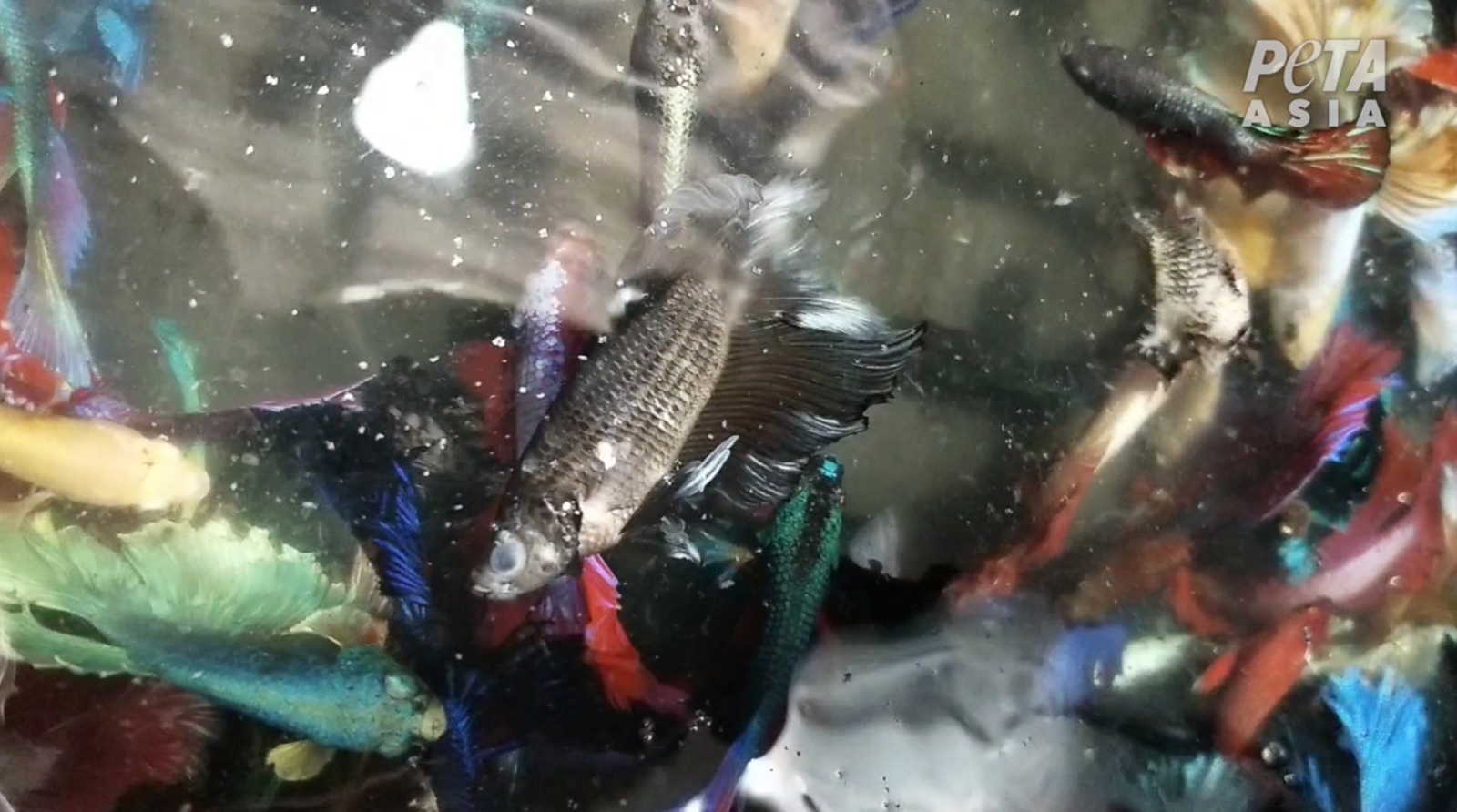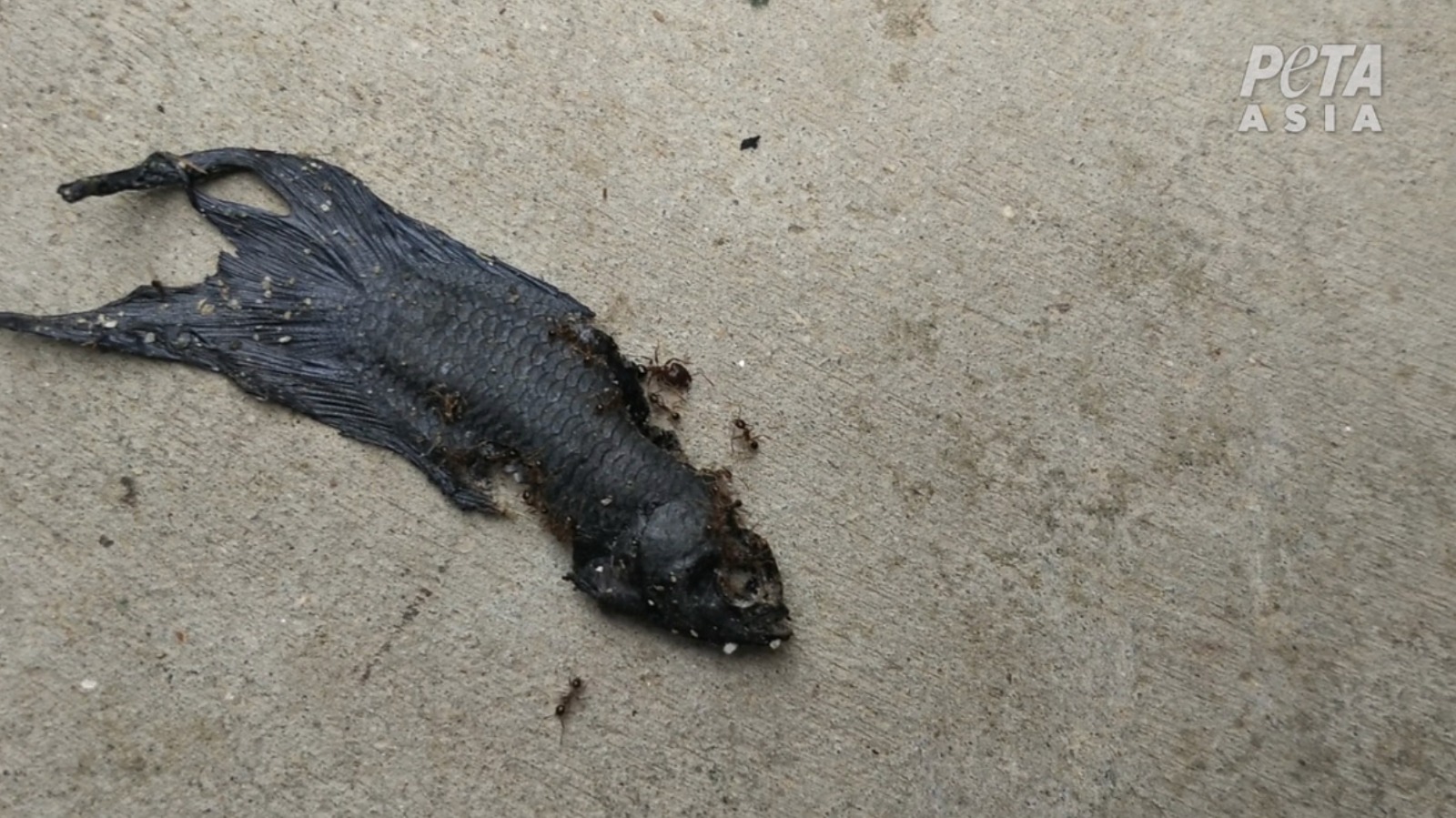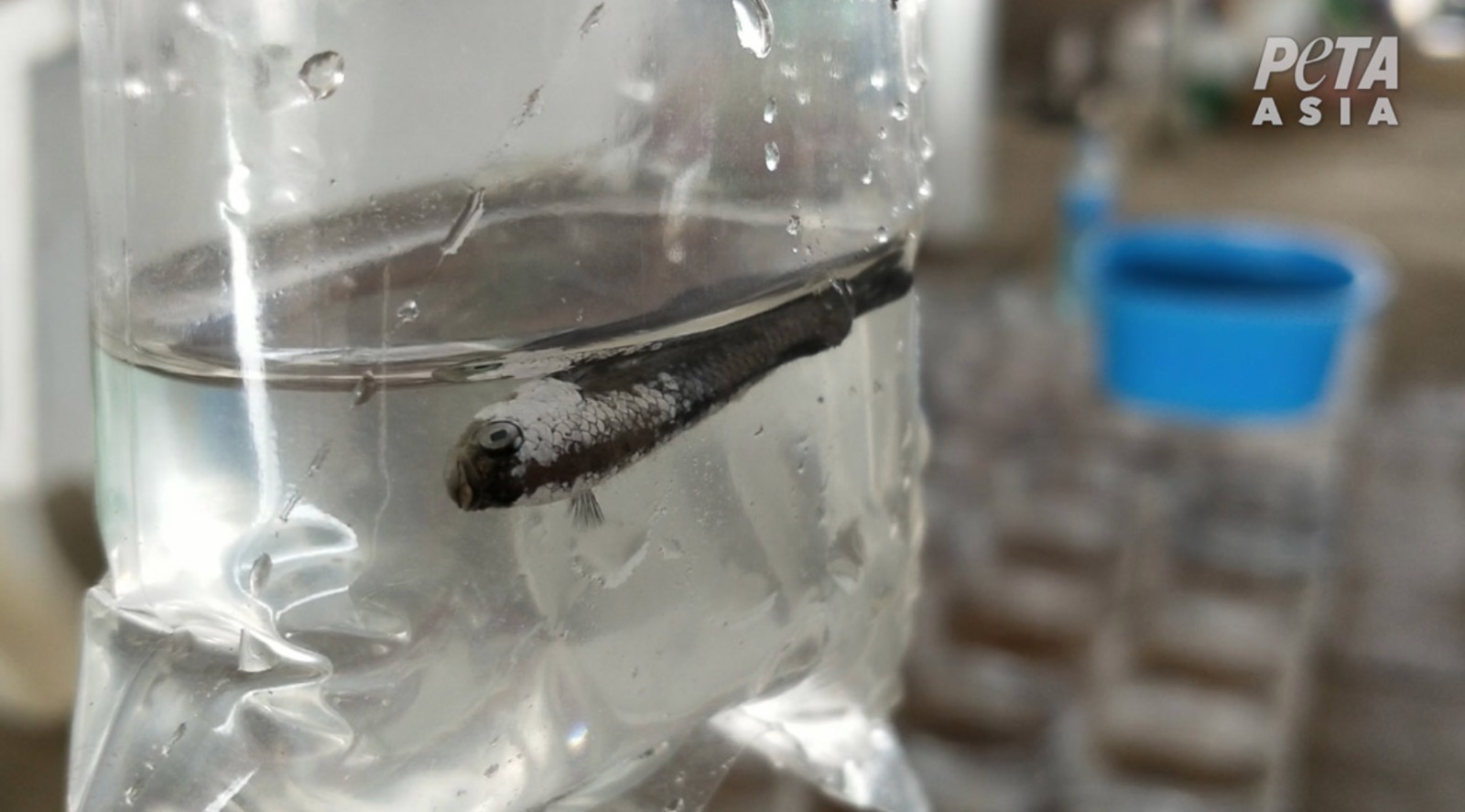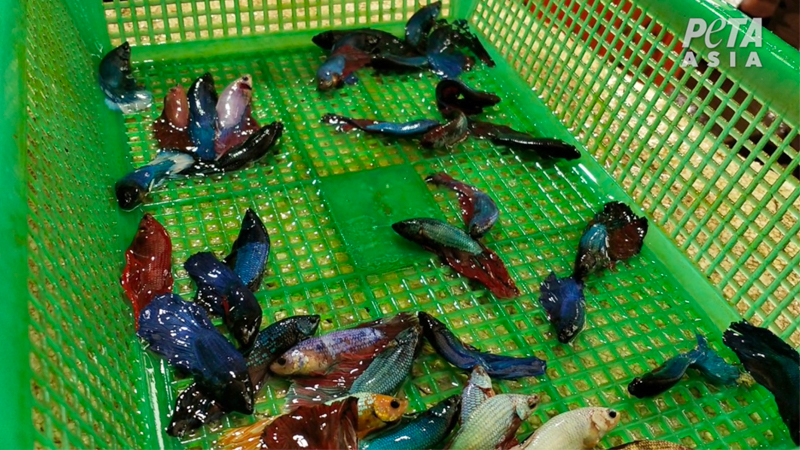The Siamese fighting fish may be a source of national pride, but where do the popular, vibrant Bettas come from?
An investigation of 10 Thai fish farms conducted by the People for the Ethical Treatment of Animals, published today, found cruelty and death at facilities supplying pet shops the world over, including Australia, Canada, China, France, Russia and the United States.
National fish: Betta to be declared Thailand’s national marine creature
Some of the inhumane discoveries included fish gasping for air in waterless trays as workers roughly sortes them for distribution, live fish forced to swim among dead fish and thousands individual fish packed together tightly in bottles or bags covering entire warehouse floors.
“Betta fish are suffering from the minute they’re born on massive breeding farms to the minute they die, all for the pet industry,” PETA Senior Vice President Jason Baker said, adding that people could stop “fueling this horrific trade” by not purchasing Bettas, or fish as pets in general.
The Betta fish was just named the kingdom’s national fish earlier this year.
Footage from one facility showed fish left to starve for days during international transport. One worker told PETA observers that tranquilizers are added in the water to keep the fish from eating their own tails out of hunger. These two practices, unfortunately, are common in the Betta industry, the report said.
Bettas, native to Southeast Asia, are now considered vulnerable by the International Union for Conservation of Nature for their habitat has been lost to urban development and farmland. Ocean pollution has also made their population in the wild decrease. A large population of Betta fish live in aquariums and fish tanks, however. These pets are bred almost entirely in captivity.



Related:
PETA vs. PATA: Protestors take on Bangkok’s infamous department store zoo
National fish: Betta to be declared Thailand’s national marine creature
You Betta Believe it! Siamese fighting fish in flag colors sold for 53,500 baht (VIDEO)
PETA surprises Bangkok shoppers with gory campaign to keep exotic skins out of fashion





KimMarie108 says
This is beyond barbaric and inexcusable. I will never shop at Petco and I hope this deters others from funding cruelty to animals, too.
LucyP says
This is why it’s so important never to buy bettas (or any animal) from a pet store. Cruelty is inherent in this greedy industry–and animals always pay the price.
CShap53 says
This is typical when animals are regarded as merchandise, not the unique individuals that they are. Want the abuse to end? Don’t support the pet industry.